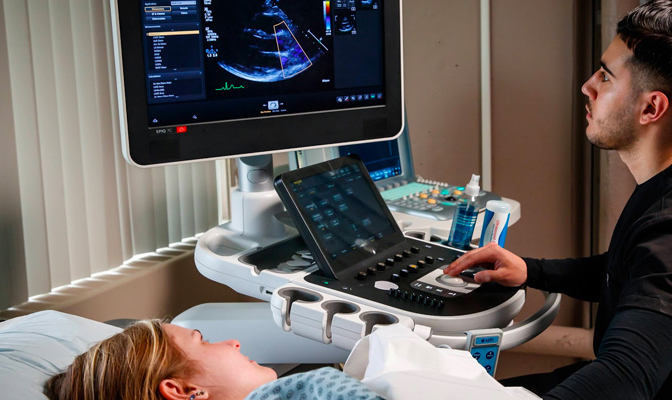Why an Echo?
- The flow of blood in the coronary arteries and veins and detect blockages
- Calculate heart function
- Heart conditions and damage after a heart attack
How to Prepare for Your Echo
You should wear comfortable, loose-fitting clothing for your exam, and you may be required to remove all of your clothing and jewelry in the area being scanned. You may also be asked to wear a gown during the procedure. There is not typically prep required for an echo procedure.
Your physician will give you a complete set of instructions before your echo so you can be fully prepared for it. If you have any questions as to what you need to do, or how the procedure is performed, you should ask your doctor.
During Your Echo
A registered diagnostic cardiac sonographer will perform the exam. He or she will begin by applying a small amount of a clear, water-based gel to the chest wall. This gel is not harmful to your skin and can be wiped off as soon as the test is complete. The sonographer will then apply the transducer to your skin, pressing it down slightly in various locations. You may be asked to hold your breath for brief periods of time.
Specialty echocardiography exams, known as TEE (trans-esophageal echo) involved a transducer passed through the esophagus like a scope to obtain pictures of the heart. This procedure takes place in a surgical setting with the cardiologist and cardiac sonographer, and the throat is numbed.
Echo’s can last up to an hour, after which the cardiologist will read the exam and study the images. The cardiologist will send the results to your physician who will discuss them with you. There are no known risks to having an echocardiography procedure done.
If you have questions about an upcoming echo, you can contact our cardiac sonographers by calling (740) 623-4132. For more information on Diagnostic Imaging testing and treatments.
Featured Services

Surgical Clinic

Emergency Services
Urgent Care
Physical and Occupational Rehabilitation



